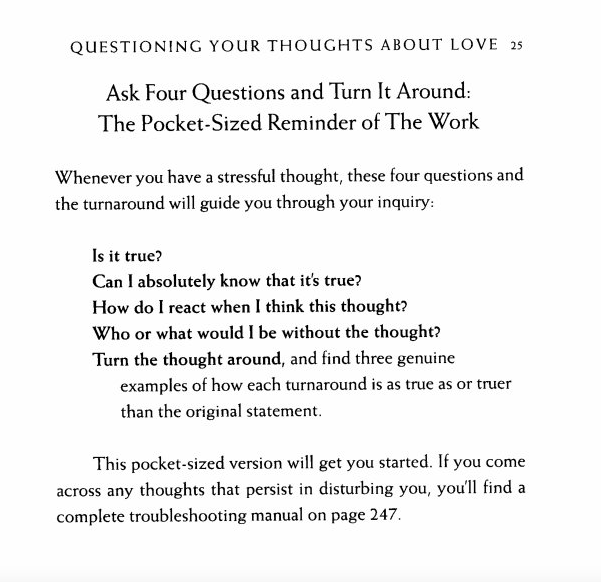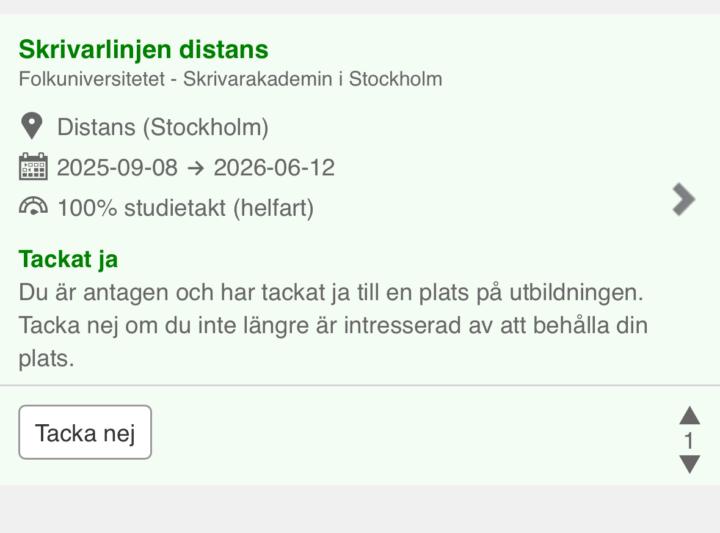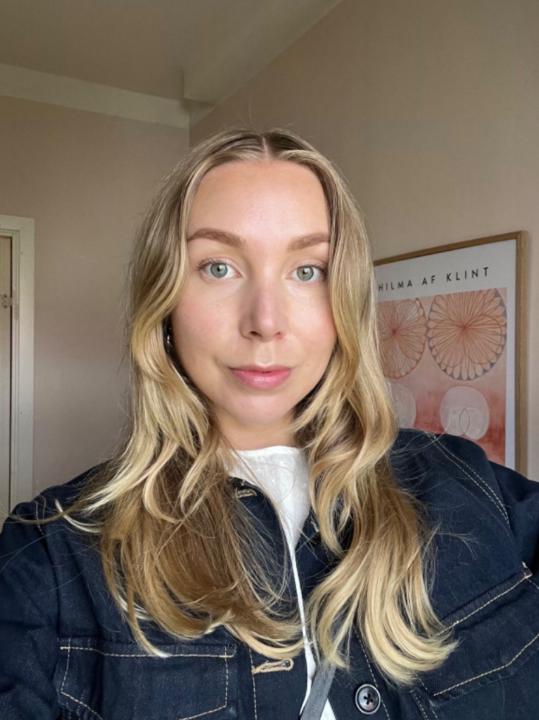Activity
Mon
Wed
Fri
Sun
Nov
Dec
Jan
Feb
Mar
Apr
May
Jun
Jul
Aug
Sep
What is this?
Less
More
Memberships
Revive to Thrive Tribe
11 members • Paid
hormonED.(free)
86 members • Free
11 contributions to Revive to Thrive Tribe
What's your current focus area?
Hi dears, I've been quite quiet on here recently for personal reasons, and we didn't have a coaching call last Wednesday, so I feel disconnected from all of your journeys. Let's do something about that!! Please feel free to share below - what is your current focus area in your health journey? eg a mindset shift? a new habit? a problem you're unsure how to navigate? And/or is there anything you're wondering about from the course or in the broader topic of health optimisation that I can offer some perspectives on? We feel less alone navigating our challenges, and learn so much, from sharing our thoughts and hearing those of others on similar paths 🫶 Also - check back here tomorrow for a podcast episode tip that will help you stop fixing what isn’t yours to fix, set boundaries with more ease, and practice feeling the freedom of focusing on yourself. Sending you big hugs on this last September Sunday 🌞💞
1 like • 17h
I think my current focus is simply getting back to the basics. I feel that I’m leaning towards a state of overwhelm where I’m quite disconnected from doing the inner work. I have a hard time being present, my mind is constantly shifting between different to-do's and I struggle with staying focused on my main goals. A lot is being done in autopilot-mode. Due to that, I’ve allowed myself to slip off track a bit lately and I feel the need to return back to my "why". I think I struggle a bit with taking full responsibility for my own health and well-being. Looking back, I’ve often fallen into the trap of victim mentality and self-sabotaging. Recently I read someone speaking about "laziness" and procrastination being rooted in a core belief of worthlessness - feeling that you're incapable of progress and success. I don’t know but something about that hit home. Another thing that I stumbled upon on social media was the distinction between self-intellectualization and self-awareness. There was this guy talking about how self-intellectualization actually can be seen as “an addiction to shame”. He stated that being stuck in asking WHY (constantly asking yourself why am I like this, where did that pattern of behavior come from, why am I stuck in this situation etc) leads to internalised shame = through the belief that something is fundamentally wrong with you, that you are inherently broken. Versus self-awareness or self-understanding, which asks more about WHAT/HOW. What is important to me, what am I feeling in this moment, how do I want to feel and what can I do to get there etc. Framed like this, it’s easy to see that the latter approach is more constructive and progressive. And while I do think it's important to ask why, I’m definitely guilty of being stuck there. With that said, I'm sending all of you a warm hug. We got this 💖
Podcast tip for the go-getters with sky-high expectations of themselves
Following up from our coaching session last week about perfectionism or sky-high standards hindering action-taking; boundary-setting; and breaking free from limiting beliefs about ourselves amongst other things - I wanted to share this podcast tip that offered lots of insights on the same topics. Listen to the conversation between Emma Grede & Dr. Thema Bryant here. & then return to this post to check out these KEY INSIGHTS from the episode: - 🧩 Healing is foundational, not optional, for a fulfilled and successful life. Without addressing unresolved trauma and limiting beliefs, individuals are likely to remain stuck, running from pain or self-sabotaging. This healing journey is ongoing, requires courage, and often necessitates professional therapy or supportive environments (like the R2T community/coaching). It is not about perfection but about embracing wholeness. 🧠 Unpacking core beliefs and childhood stories reveals self-limiting patterns: Many behaviours that hold people back—eg procrastination, conflict avoidance, low self-esteem... —are rooted in childhood messages absorbed from parents, teachers, and peers. These “lies” or negative stories shape how we see ourselves. Recognising and rewriting these narratives through techniques like narrative therapy can empower individuals to reclaim agency and redefine their identity (as learnt in R2T). 😨 Fear of failure and success often paralyse progress: Fear is a powerful force that manifests in different ways, including perfectionism, procrastination, and controlling behaviours. Dr. Brian recommends visualisation (as learnt in R2T) and exposure techniques to imagine the worst-case scenario and see oneself surviving it, which can desensitize the fear and build resilience. Recognizing fear as a natural response to the unknown allows for more intentional risk-taking. ❤️🩹 Trauma influences emotional regulation and trust, impacting relationships and workplace dynamics: Trauma overwhelms coping capacity and can produce hypervigilance, difficulty trusting others, and emotional volatility. In the workplace, trauma or stressors such as layoffs or lack of transparency exacerbate anxiety and reduce psychological safety. Leaders must practice self-compassion, acknowledge mistakes, and foster open communication to create healthier environments.
1 like • 12d
I loved the part about redefining forgiveness, seeing it as a way of freeing yourself from the heaviness that the situation has caused. I think it's so easy to get stuck in resentment which, as you've already mentioned, keeps one stuck in a state of negativ energy and pain. Obviously, feeling mistreated or hurt is 100% valid but in the end we can't change the other person. So, shifting the focus back to ourselves, and instead seeing forgiveness as an act of self-care, allows us to let go of the anger and bitterness without feeling like we're accepting being mistreated. I haven't though about it in that way but it really resonated with me 🦋
Questioning your own thoughts ✨
This was the mental reframing method that I mentioned at the previous coaching call! It's from a book called I need your love - Is that true?, written by Byron Katie. I borrowed the book and then I didn't have the time to read more than the first two chapters before I had to return it (will read the whole book at some point though). I can definitely recommend it - lots of aha-moments (for me at least)! With that said I wish you a lovely weekend! ⭐ Hope this friday has treated you well so far 💕

Coaching call 3rd of Sep
I am so sorry for not summarising last week’s coaching call until now. My life has taken interesting turns recently nudging me to be present offline. Let’s try to recap what we talked about, shall we? KEY TAKEAWAYS - When doing visualisation meditations, painful emotions or even pain in your body can surface because suppressed feelings are brought to light. Allow them to come, without judgment or fear. This too shall pass - but it’s only by bringing it to light that we take back the control. - At first, stillness (e.g. due to illness or other reasons you can’t “run” from your feelings) can bring anxiety or other unwanted feelings due to the urge to want control, to “sit in the driver’s seat” and know where life is heading. But it’s in the silence & stillness - particularly the removal of (digital) distractions - that we allow for deeper presence, deeper understanding of ourselves. It also allows us to cherish more the small moments, which essentially are what add up to form our life. - Setting boundaries is so important and an important part of the work in R2T. 2 things to bare in mind: 1) HOW we communicate our boundaries can often be more important than WHAT we say. This involves explaining how the boundary will help you to show up as a better version of yourself in the relationship where you’re setting boundaries. Yet, 2) Sometimes communication isn’t enough — you may need to physically remove/distance yourself from a relationship if the other part refuses to respect your boundaries. - There’s a two-edged sword between focusing on a single task/opportunity, and letting perfectionism or other limiting beliefs hold you back from “taking the leap” or meeting your true potential. On the one hand, focusing wholeheartedly on a single opportunity (e.g. a project, a startup idea, one book at a time etc.) will get you faster to your goal, with more impact & less stress & less “overhead costs” (from double admin/switching between tasks etc.) as Cal Newport calls it in his book “Slow Productivity”. On the other hand, many of us choose to focus on something that society has told us is “respectable”, yet it doesn’t give us pure fulfilment or joy. We often go on autopilot rather than stopping to ask ourselves: “is this truly what I desire from life?”, in addition to unconsciously being held back by limiting beliefs like “this isn’t/I’m not good enough, so there’s no point in me even trying because I will anyway fail”. So in periods of our life, we may want to have 2 projects going on simultaneously e.g. one that pays the bills, the other that gives us true fulfilment & helps us grow outside of our comfort zone & teaches us to take action even if it isn’t “perfect”. - There can be a tendency to “protect oneself” by telling others about our so-called flaws, but words can become self-fulfilling prophecies - the stories we tell ourselves & others can over time form our identity ⇒ and therefore also our reality. - Breaking an old identity or belief about yourself that no longer serves you (e.g. “people always think that I take up too much space” or “I never have anything interesting to contribute with” etc.) starts with rewording the story in your head AND out loud. Immersing yourself in new environments is a great way to practice rewriting the stories you tell about yourself, until it’s become so ingrained that you can stand firmly in that identity even in existing relationships. - A fast track to rewriting such beliefs / identity shifts is visualising yourself as the person you WANT to be whilst in deep meditation/after breathwork when you’re in gamma/theta/alpha brain waves. You practice this in the course actions. - A comforting reminder: Everyone is so focused on themselves that they rarely have time to dwell on you as much as we think they do. - Any thought can be reframed — turning pain or challenge into meaning, and helping you to find positivity even in difficult situations. See picture in comment section.
Allt händer nu!!
För exalterad för att översätta mina tankar till engelska!! Jag kom in på skrivarutbildningen!!😍 den här utbildningen är bara för mig. Bara för att få djupdyka i något som jag vill. Och tydligen endå är så pass okej på att jag kom in😍🌟🙏🏼💕

1-10 of 11



